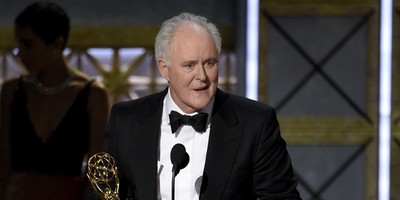WASHINGTON -- Not long after President Obama was sworn into office, he faced a monstrous $1.8 trillion budget deficit that analysts said would force him to sharply curtail his big-spending agenda.
But Obama saw the economic recession he inherited as another Great Depression (which it's not) that demands the enactment of a lengthy list of new social programs, whose costs will drive total federal spending to more than $3.7 trillion in 2010 and add more than $9 trillion to the government's total debts over the coming decade.
Deficits or no deficits, debts or no debts, Obama sees no reason to cut back on his ambitious agenda, despite the news that an additional tsunami debt wave is about to come crashing down on his presidency.
The Social Security Trustees announced this month that the program will begin running out of money in just seven years, and the Medicare Trustees said that Medicare's Part A hospital fund will be insolvent one year later.
Saving these programs from financial collapse would be a major task in and of itself. But Obama wants to do it all -- including bail out the economy, create a government health care system, pour billions more into education, including a new college-tuition program, and end the nation's reliance on fossil fuels. And that's just for starters.
But analysts, including Democrats, have begun asking whether his wish list is more spending than a debt-ridden, weakened economy can handle without falling deeper into a financial hole.
Recommended
"He has wagered his presidency on the proposition that the U.S. budget and political system can simultaneously absorb" the costs of all that he has set forth in a sweeping agenda to expand the size and growth of government, wrote Bill Clinton's former chief domestic adviser, Bill Galston, in London's Sunday Times.
"A key question is whether the public will support, and Congress will enact, a program that relies so heavily on the capacity of the national government to serve as an effective instrument of national purpose. This is in part a question of fiscal capacity," he said.
Norman Ornstein, a senior analyst at the American Enterprise Institute, has raised the question of whether Congress is "even capable of handling so many projects at once."
Obama's New Deal agenda is predicated on the dubious belief that we are enduring an economic catastrophe that we have not seen since the Great Depression and that future economic growth can be achieved only by enacting health care, energy reforms and other programs he has proposed.
But Galston rightly reminded us, and Obama, that "current circumstances in the United States do not approach the gravity of the situation FDR faced when he took office." The nation's gross domestic product (GDP), the measure of all our economy produces, "has fallen at an annual rate of about 6 percent from its 2008 peak; by 1933, GDP had fallen nearly 40 percent from four years earlier." Unemployment, though severe at 8.9 percent, is up from 4.9 percent a year ago, while 25 percent were jobless in 1933, including 37 percent in the farming sector.
The nation's economic and fiscal policies need some pro-growth fine-tuning, but not another and even costlier New Deal.
Fortunately, presidents propose and Congresses dispose, and there are some early signs that key parts of Obama's agenda have run into resistance, in some cases, from the president's Democratic allies.
Democratic leaders have been forced to significantly modify parts of the administration's cap-and-trade energy tax bill because it did not have the votes to pass the House. Even with those changes, analysts say the plan may not overcome a filibuster in the Senate, where Midwestern Democrats fear it will hurt their coal-driven economies.
More than climate change is riding on the bill. Obama is counting on the huge tax revenue it is supposed to raise to finance his $1 trillion national health care plan. That revenue has been sharply cut back.
His revenue-raising proposals to cap tax deductions for charitable contributions and home-mortgage interest are dead on arrival, Democrats say, further depriving him of funds for health care reform.
Even with his party firmly in control of both chambers, Obama admitted that he does not have the votes to pass the so-called "card check" bill to make it easier to unionize businesses and that it will have to undergo revisions.
Meantime, spending critics say Obama's FDR-inspired agenda will bury America in historic levels of new debt on top of unfathomable levels of unfunded liabilities that start with $35 trillion for Medicare over the next 75 years. "Taxpayers cannot even pay for the commitments we already have made for Social Security and Medicare, and yet he wants to add trillions of dollars in additional spending on top of that," said Heritage Foundation chief budget analyst Brian Riedl.
"At the end of the day, his numbers don't add up," said Marc Goldwein, policy director at the Committee for a Responsible Federal Budget. "They want to do everything, and it's just not realistic."

























Join the conversation as a VIP Member